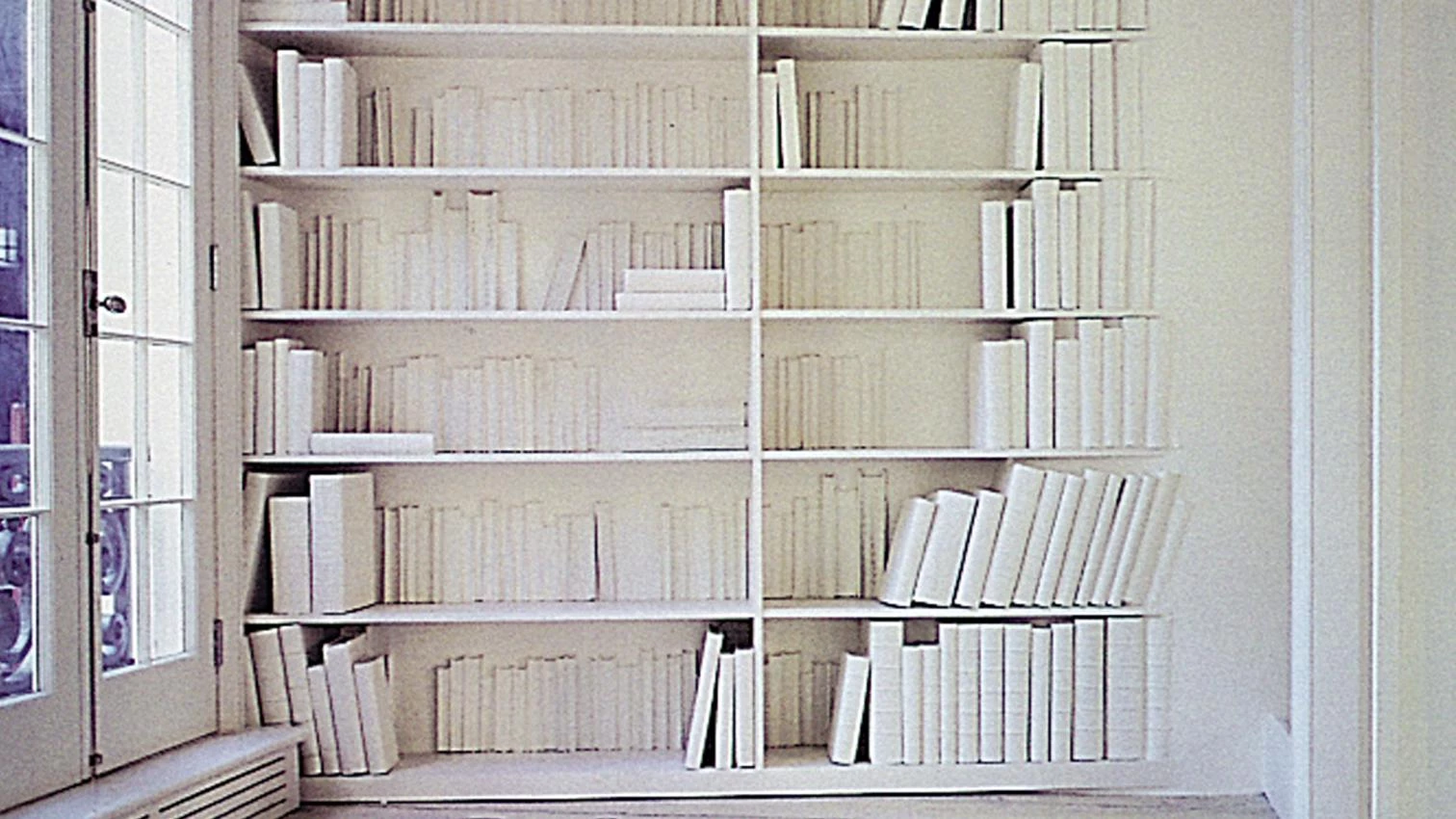
The book once inhabited libraries. Today, however, the book has been sequestered by the industry of leisure, and libraries have joined the circuits of information. Leisure and information, though not incompatible, occupy different spaces in the symbolic architecture of contemporary society, so the book and the library are drifting apart like ice floes. Books, which in times past nourished a delicate fabric of public and private libraries, are now produced and consumed with a voracity that leaves no residue: deposits have turned into flows. And libraries, which always had their raison d’être on interminable shelves of volumes, are now buildings where information and service are spliced together, ambiguous constructions where the administrative office, the cultural center and the public attention pavilion become one.
If the book no longer aspires to repose in the library, and if the library has no more need or desire to store books, the publisher is reduced to a commercial agent, and the librarian to a specialist in machines and computer software, fracturing the ancient complicity on which the relationship between the book and the library was based. The massive consumption of circumstantial books and the compulsive mechanization of the electronic library creates a world in which book means “bestseller sold out in department stores through publicity campaigns” and library is a short way to say “screens through which to access files, CD- ROMs or Internet”. In this context it seems but logical for the state of California to decide not to build any more university libraries, and to redirect its resources to the setting up of virtual libraries, which in the absence of material books have no need for physical buildings.
But even when the infinite library of Babel that Borges dreamed of is completed in cyberspace, and even when the explorers of the labyrinthian universe of books are all sailors cruising through the web in the pallid wake of screens, there will still be a place for archaic readers who have lost their way in the digital jungle, and there will always be a purpose for the old libraries that have been stripped of books. As individual reading and electronic navigation are moved to the residence, libraries can become the sanctuaries of serenity and silence once embodied by churches —now closed to anything not having to do with ceremonies of worship or tourist curiosity. Permanently open, luminous and warm, freed of the weighty load of books but also of the insufferable nightmare of machines, libraries can be a refuge for young and old alike, an escape from the din of school and home: a collective sacred place serving the intimacy of the introverted individual.






